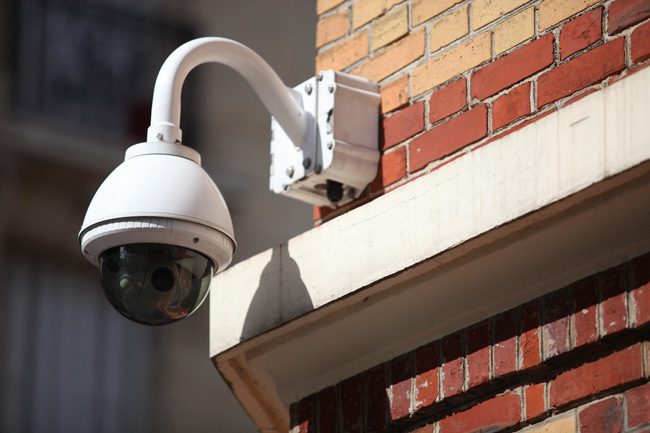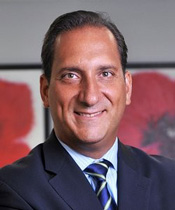
By Stephen Furnari
Flagler Schools and the Florida Department of Education recently concluded an investigation of a teacher and three paraprofessionals at Belle Terre Elementary School who were accused of unlawfully locking a fourth grade, non-verbal student with autism for 35 minutes in an empty, dark classroom, alone, while the child screamed (an act known as “seclusion”), and for verbally abusing the child.
The staff members were secretly recorded by the student’s mother, who had grave concerns that her child was being abused and, allegedly, felt the district was not adequately responding to her complaints.
Because of the nature of how the recording was obtained, it was not admissible as evidence in the investigations. Per the district’s attorney, Kristy Gavin, the evidence used in the investigations consisted mostly of interviewing the accused parties.
Predictably, the Department of Education and the district found “insufficient evidence” that staff secluded a child or inappropriately used seclusion. Some of the accused staff received what amounted to a slap on the wrist, and some retained their jobs at the district. (Two of the four employees named in the complaint were not retained for the 2019-20 school year.)
To parents in the Exceptional Student Education, or ESE, community, particularly those with non-verbal children, the outcome of this investigation is a disgrace. It highlights the extreme lack of protection afforded to a population of students who are vulnerable to abuse. Further, it sends the wrong message to would be abusers.
Non-verbal students with disabilities are the most vulnerable student population. Many of these students are trapped inside their own bodies and cannot let anyone know if they are hurt, sick, being treated unfairly, bullied, or abused.
Every day, I send my 10-year old, non-verbal daughter to school. I have to trust that bus drivers, aids, non-teaching staff, paraprofessionals and teachers will be responsible, ethical, and law abiding. That they won’t say abusive or ableist things to my child, as was recorded by the Belle Terre Elementary mom.

And what’s most disconcerting — because my child can’t tell me if there is something wrong — I have to trust that, if a member of staff is not acting appropriately, his or her peers will report it to administration and it will be dealt with swiftly and appropriately.
Can you imaging being the mom who filed the complaint against the staff at Belle Terre Elementary School? Being so scared about the safety of your child that you are driven to take the extreme measure of sending your child to school with a hidden recording device, because you know in your heart that something is wrong. An act that, under certain circumstances, is a crime in the State of Florida. (It is a third-degree felony to record a person in a setting where he or she has an expectation of privacy, and absent permission to record.)
While the mom’s recording may not have been permitted to be used as evidence in the DOE or district investigation, it nevertheless exposed ableist, abusive and unethical behavior being committed by district staff against non-verbal students with disabilities. It also exposed a serious flaw in the district’s security procedures for non-verbal students: that if there is suspected abuse, in some cases, the evidence will come solely from the accused and not any other objective source.
In our May meeting, the Flagler ESE Parent Advisory Council (EPAC) identified that the district’s system of relying on teaching staff and paraprofessionals to report their peers who are not performing their jobs (or worse) to administration is grossly insufficient, and puts children with disabilities at greater risk of being abused.
EPAC identified that a culture exists among district teaching staff and paraprofessionals to not report peers who engage in unethical, ableist or abusive behavior for fear of social or professional reprisal, or retaliation from in-school administration.
EPAC has identified this as a serious issue, and we have been working with district administration to institute an anonymous reporting mechanism for staff, similar to the anti-bullying portal offered on the District’s website. (Palm Coast government last year instituted one such anonymous reporting system. It has enabled city staff to reveal several instances of unethical, inappropriate or illegal behavior by employees.)
But relying on staff to report on their peers is not enough.
Paraprofessionals in our district are paid low wages, many lack the skills and resources they need to perform their job, and they receive inadequate training. Special education teachers are overwhelmed with heavy caseloads and general education teachers with ESE students are often not adequately trained to handle this student population.
It’s a recipe for abuse, and with the outcome of this most recent investigation, the district and the DOE just sent a message to abusers that they will be given a free pass.
For this reason, many parents in the ESE Community feel that cameras with audio recording capability should be installed in every classroom and school area where students with disabilities are present. (A bill pending in the Louisiana Legislature would require just that: video and audio recording of ESE settings in all public and charter schools. The bill was introduced after a television station reported that an autistic child had been handcuffed to a chair.)
The addition of cameras would be that extra layer of accountability that parents, like me, desperately want. Like body cameras on law enforcement officers, the measure would also protect district staff from being subject to false accusations.
It’s an easy fix that will cost the district far less than defending and getting an adverse financial judgment in a federal discrimination lawsuit.
Plus it’s the right thing to do.
![]()
Stephen Furnari chairs the Flagler ESE Parent Advisory Council (EPAC). EPAC is a joint effort between District staff and parents in the ESE Community to improve ESE in Flagler Schools and foster stronger relationships among all stakeholders. The views expressed by Furnari in this article are his own and do not necessarily reflect the official policy or position of EPAC.





























FPC Granny says
What an excellent idea!! Should have a camera with audio in every classroom in all grades levels. This way the teachers along with students can be monitored!!
Mary Fusco says
A camera needs to be installed in every classroom, more importantly for disabled students, but so that all parents can see how their innocent darlings behave in school if there is a problem. The camera doesn’t lie. LOL
Jana ONeill says
[Note: Ms. O’Neill is wrong in at least one respect: the Department of Education did investigate, as did DCF, as did the local district.–FL]
Cameras are in the hallway, the child was not locked in a room & he could easily walk out at any point. The teacher was in an IEP meeting with another ESE parent during most the time in which the student refused to leave the room. He was not physical removed or touched but allowed to have a tantrum while supervised. People need to get the facts straight. DOE didn’t investigate it was DCF furthermore, they didn’t investigate the teacher and concluded with no founding. I don’t disagree with having cameras.
L Ben says
Go to Flagler Lives Facebook page and see comments about this post. Also go to Starr Consulting and Advocacy Services Facebook page to read all comments from the beginning of this. Teacher and her husband posted some CRAZY comments and responses. If she has nothing to hide, let’s have a hear the tape party for all concerned. How about it Jana?
Cherie Bredbury says
😢
Kandi Crocker says
I think the cameras in every classroom should be mandatory..I too have a child that is autistic and non verbal and he starts school this year and I am terrified for him.